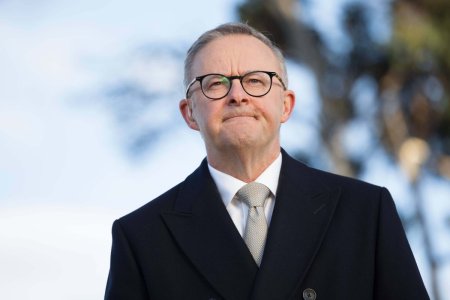Medicare needs an ‘urgent shake up’, says PM Anthony Albanese
- Replies 22
It’s been a long time coming, but the government is now looking into a major Medicare overhaul.
As many of you know firsthand, the current system is largely failing Australians as bulk billing all but disappears and timely appointments are increasingly difficult to book.
The Australian government has recently announced ambitious plans to completely overhaul Medicare, introducing what they are calling a ‘modern’ version of the system that we use today.
Prime Minister Anthony Albanese said the Medicare system his government had inherited was 'struggling to keep up', forcing many Australians to miss out on the vital healthcare they need.
'This has been discussed for many years. We had pilots on it when we were last in government, particularly in the area of diabetes,' Health Minister Mark Butler said.
'More of the same is simply not going to cut it. Strengthening Medicare means also modernising Medicare,' Mr Butler said.
It is yet to be determined exactly what a modern Medicare will look like, but the government is working on a ‘blended’ primary care delivery system, where nurses and pharmacists will be allowed to take on more roles.
This reform comes after a worrying drop of seven per cent in bulk-billing rates in the past year alone, and patients who are unable to access timely appointments due to understaffed GPs.
The Health Minister went on to explain that the average gap fee for a standard GP consult is now 'more than the rebate fee itself'.
And while efforts to reduce wait times have stalled, demand for GPs has skyrocketed.
Emergency department visits have also doubled over the past four years, as a result of a lack of access to GPs, placing even more pressure on an already strained hospital system.
In addition, previously unheard-of wait times for surgery, tests, and scans have become commonplace in public hospitals.
'What this means is that too many Australians simply can’t get the care that they need when and where they need it out in the community, and too many are ending up instead in hospital emergency departments, placing even more pressure on an already very, very stressed hospital system,' Mr Butler said.
Mr Albanese said it risked completely overwhelming the health system.
He also expressed the urgent need to update Medicare, saying the country's primary care system is 'stuck in the 1980s and 1990s' and its systems 'no longer make sense.'
'What we know we need to do is fix primary health care,' he said.

At the heart of the government's plan to shake up Medicare is the idea of introducing a ‘blended’ funding model and sharing the load of primary care with other health practitioners.
This would mean expanding the scope of primary care to cover nurses, paramedics and allied health practitioners, who could work in teams to deliver complex care.
The effectiveness of ‘blended’ primary care models has long been discussed, and there were trials conducted when the Labor government was last in power.
In this model, funding is ‘wraparound’ and intended to provide better access to care for those with chronic conditions, or those disadvantaged by the current fee-for-service system which provides inherently unequal access to healthcare services.
By providing a more comprehensive model, the government hopes to improve patient and provider satisfaction, increase the availability and quality of primary care, and reduce the pressure on hospitals and other healthcare services.
The success of the blended model hinges on having the resources available to build better teams and a more collaborative approach, as well as the ability of the government to deliver on its promise of investment in the system. It remains to be seen what the final recommendations of the Strengthening Medicare Taskforce contain, and how significant its impact on primary care will be.
'Labor has no higher priority than strengthening Medicare, rebuilding general practice to ensure that Australians get the world-class healthcare they need when and where they need it out in the community.'

But the Opposition’s Health spokeswoman, Anne Ruston, has slammed Labor, accusing them of cutting Medicare and reducing access to mental health treatments instead of supporting Australians.
'So far they have cut Medicare and cut access to Medicare-rebated mental health sessions in half from 20 to 10 sessions,' she said.
'The Labor government also promised to have 50 urgent care clinics up and running by July this year - but we still do not know the exact locations of these clinics, bringing to question if they will even be delivered at all.'
'Labor must outline tangible actions and a plan to support our healthcare workers and hospital systems, rather than just making announcements and promises with no details or information,' Senator Ruston said.
In the coming weeks, the final report of the Strengthening Medicare Taskforce will be released. The program will guide decisions that the government needs to take in the coming May budget to finalise the investment in the ‘strengthening Medicare fund’.
Interested in reading more about this? In December, we looked into a recent report which claims ‘Medicare no longer works for patients or GPs.’ You can read more here.
Members, if you’re worried about how this proposed overhaul may affect you, then you’re not alone. We’ll be sure to bring you the latest information as soon as it comes to hand, so stay tuned!
As many of you know firsthand, the current system is largely failing Australians as bulk billing all but disappears and timely appointments are increasingly difficult to book.
The Australian government has recently announced ambitious plans to completely overhaul Medicare, introducing what they are calling a ‘modern’ version of the system that we use today.
Prime Minister Anthony Albanese said the Medicare system his government had inherited was 'struggling to keep up', forcing many Australians to miss out on the vital healthcare they need.
'This has been discussed for many years. We had pilots on it when we were last in government, particularly in the area of diabetes,' Health Minister Mark Butler said.
'More of the same is simply not going to cut it. Strengthening Medicare means also modernising Medicare,' Mr Butler said.
It is yet to be determined exactly what a modern Medicare will look like, but the government is working on a ‘blended’ primary care delivery system, where nurses and pharmacists will be allowed to take on more roles.
This reform comes after a worrying drop of seven per cent in bulk-billing rates in the past year alone, and patients who are unable to access timely appointments due to understaffed GPs.
The Health Minister went on to explain that the average gap fee for a standard GP consult is now 'more than the rebate fee itself'.
And while efforts to reduce wait times have stalled, demand for GPs has skyrocketed.
Emergency department visits have also doubled over the past four years, as a result of a lack of access to GPs, placing even more pressure on an already strained hospital system.
In addition, previously unheard-of wait times for surgery, tests, and scans have become commonplace in public hospitals.
'What this means is that too many Australians simply can’t get the care that they need when and where they need it out in the community, and too many are ending up instead in hospital emergency departments, placing even more pressure on an already very, very stressed hospital system,' Mr Butler said.
Mr Albanese said it risked completely overwhelming the health system.
He also expressed the urgent need to update Medicare, saying the country's primary care system is 'stuck in the 1980s and 1990s' and its systems 'no longer make sense.'
'What we know we need to do is fix primary health care,' he said.

Anthony Albanese said the Medicare system his government had inherited was 'struggling to keep up'. Image Credit: Shutterstock
At the heart of the government's plan to shake up Medicare is the idea of introducing a ‘blended’ funding model and sharing the load of primary care with other health practitioners.
This would mean expanding the scope of primary care to cover nurses, paramedics and allied health practitioners, who could work in teams to deliver complex care.
The effectiveness of ‘blended’ primary care models has long been discussed, and there were trials conducted when the Labor government was last in power.
In this model, funding is ‘wraparound’ and intended to provide better access to care for those with chronic conditions, or those disadvantaged by the current fee-for-service system which provides inherently unequal access to healthcare services.
By providing a more comprehensive model, the government hopes to improve patient and provider satisfaction, increase the availability and quality of primary care, and reduce the pressure on hospitals and other healthcare services.
The success of the blended model hinges on having the resources available to build better teams and a more collaborative approach, as well as the ability of the government to deliver on its promise of investment in the system. It remains to be seen what the final recommendations of the Strengthening Medicare Taskforce contain, and how significant its impact on primary care will be.
'Labor has no higher priority than strengthening Medicare, rebuilding general practice to ensure that Australians get the world-class healthcare they need when and where they need it out in the community.'
Key Takeaways
- The Australian government is considering a significant overhaul of Medicare, potentially opening up primary care delivery to nurses and pharmacists.
- The need for reform is due to bulk billing rates plummeting by seven per cent in the past year.
- Patients are struggling to get timely appointments with their GPs due to a slimmer workforce and exploding demand.
- The government is considering rolling out a ‘blended’ funding system for nurses and allied health practitioners delivering complex care.
But the Opposition’s Health spokeswoman, Anne Ruston, has slammed Labor, accusing them of cutting Medicare and reducing access to mental health treatments instead of supporting Australians.
'So far they have cut Medicare and cut access to Medicare-rebated mental health sessions in half from 20 to 10 sessions,' she said.
'The Labor government also promised to have 50 urgent care clinics up and running by July this year - but we still do not know the exact locations of these clinics, bringing to question if they will even be delivered at all.'
'Labor must outline tangible actions and a plan to support our healthcare workers and hospital systems, rather than just making announcements and promises with no details or information,' Senator Ruston said.
In the coming weeks, the final report of the Strengthening Medicare Taskforce will be released. The program will guide decisions that the government needs to take in the coming May budget to finalise the investment in the ‘strengthening Medicare fund’.
Interested in reading more about this? In December, we looked into a recent report which claims ‘Medicare no longer works for patients or GPs.’ You can read more here.
Members, if you’re worried about how this proposed overhaul may affect you, then you’re not alone. We’ll be sure to bring you the latest information as soon as it comes to hand, so stay tuned!
You may like to watch 7NEWS’ coverage below:
Last edited:








